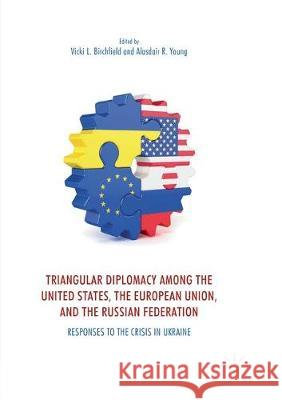Triangular Diplomacy Among the United States, the European Union, and the Russian Federation: Responses to the Crisis in Ukraine » książka
topmenu
Triangular Diplomacy Among the United States, the European Union, and the Russian Federation: Responses to the Crisis in Ukraine
ISBN-13: 9783319875552 / Angielski / Miękka / 2018 / 232 str.
Triangular Diplomacy Among the United States, the European Union, and the Russian Federation: Responses to the Crisis in Ukraine
ISBN-13: 9783319875552 / Angielski / Miękka / 2018 / 232 str.
cena 523,30
(netto: 498,38 VAT: 5%)
Najniższa cena z 30 dni: 501,19
(netto: 498,38 VAT: 5%)
Najniższa cena z 30 dni: 501,19
Termin realizacji zamówienia:
ok. 22 dni roboczych
Bez gwarancji dostawy przed świętami
ok. 22 dni roboczych
Bez gwarancji dostawy przed świętami
Darmowa dostawa!
Kategorie BISAC:
Wydawca:
Palgrave MacMillan
Język:
Angielski
ISBN-13:
9783319875552
Rok wydania:
2018
Wydanie:
Softcover Repri
Ilość stron:
232
Oprawa:
Miękka
Wolumenów:
01











